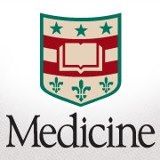预约演示
更新于:2026-01-15

RevImmune, Inc.
更新于:2026-01-15
概览
标签
肿瘤
血液及淋巴系统疾病
免疫系统疾病
白细胞介素
疾病领域得分
一眼洞穿机构专注的疾病领域
暂无数据
技术平台
公司药物应用最多的技术
暂无数据
靶点
公司最常开发的靶点
暂无数据
| 排名前五的药物类型 | 数量 |
|---|---|
| 白细胞介素 | 1 |
| 排名前五的靶点 | 数量 |
|---|---|
| IL-7Rα(白细胞介素-7受体α亚基) | 1 |
关联
1
项与 RevImmune, Inc. 相关的药物靶点 |
作用机制 IL-7Rα激动剂 [+1] |
在研机构 |
原研机构 |
最高研发阶段临床2期 |
首次获批国家/地区- |
首次获批日期- |
13
项与 RevImmune, Inc. 相关的临床试验NCT06523699
A Pilot Study of the Impact of Recombinant Human Interleukin-7 (CYT107) on Tumor Clearance and Immune Reconstitution in Multiple Myeloma Patients After Autologous Hematopoietic Cell Transplant
This is a two-arm, open-label, randomized, single-site, pilot study testing the addition of CYT107 following autologous hematopoietic cell transplant (AHCT) in patients with multiple myeloma (MM). The hypothesis of this study is that recombinant human CYT107 can be safely administered after AHCT and will promote quantitative and qualitative T cell reconstitution, which will be associated with enhanced tumor cell clearance and reduced infectious complications. Patients will be randomized to either the intervention arm that will receive CYT107 + standard of care melphalan and AHCT or to the control arm that will receive standard of care melphalan and AHCT only.
开始日期2025-04-04 |
申办/合作机构 |
NCT04927169
Recombinant Human InterLeukin-7 (CYT107) to Improve Clinical Outcomes in Lymphopenic PAtients With COVID-19 Infection - "ILIAD 7 Trial" Brazil Cohort
Comparison of the effects of CYT107 vs Placebo administered by intra-muscular route (IM) at 10μg/kg twice a week for three weeks on immune reconstitution of lymphopenic COVID-19 patients
开始日期2021-03-01 |
申办/合作机构  RevImmune, Inc. RevImmune, Inc. [+1] |
NCT04426201
A Multicenter, Randomized, Double-blinded Placebo-controlled Study of Recombinant Interleukin-7 (CYT107) for Immune Restoration of Hospitalized Lymphopenic Patients With Coronavirus COVID-19 Infection. US Oncology Cohort
Comparison of the effects of CYT107 vs Placebo administered IM at 10μg/kg twice a week for three weeks on immune reconstitution of lymphopenic COVID-19 patients
开始日期2020-12-20 |
申办/合作机构  RevImmune, Inc. RevImmune, Inc. [+4] |
100 项与 RevImmune, Inc. 相关的临床结果
登录后查看更多信息
0 项与 RevImmune, Inc. 相关的专利(医药)
登录后查看更多信息
2
项与 RevImmune, Inc. 相关的文献(医药)2017-02-01·Journal of leukocyte biology3区 · 医学
Interleukin 7 immunotherapy improves host immunity and survival in a two-hit model of Pseudomonas aeruginosa pneumonia
3区 · 医学
Article
作者: Fuchs, Anja G ; Morre, Michel ; Unsinger, Jacqueline ; Eitas, Tim ; Hotchkiss, Richard S ; Bochicchio, Grant V ; Green, Jonathan M ; Shindo, Yuichiro ; Davis, Christopher G ; Burnham, Carey-Ann D
Abstract:
Patients with protracted sepsis develop impaired immunity, which predisposes them to acquiring secondary infections. One of the most common and lethal secondary infections is Pseudomonas aeruginosa pneumonia. Immunoadjuvant therapy is a promising approach to reverse sepsis-induced immunosuppression and improve morbidity and mortality from secondary infections. Interleukin-7 is an immunoadjuvant that improves survival in clinically relevant animal models of polymicrobial peritonitis and in fungal sepsis. This study investigated the effect of recombinant human interleukin-7 (rhIL-7) on survival in a 2-hit model of sublethal cecal ligation and puncture followed by P. aeruginosa pneumonia. Potential immunologic mechanisms responsible for the rhIL-7 putative beneficial effect were also examined, focusing on IL-17, IL-22, IFN-γ, and TNF-α, cytokines that are critical in the control of sepsis and pulmonary Pseudomonas infections. Results showed that rhIL-7 was highly effective in preventing P. aeruginosa–induced death, i.e., 92% survival in rhIL-7–treated mice versus 56% survival in control mice. rhIL-7 increased absolute numbers of immune effector cells in lung and spleen and ameliorated the sepsis-induced loss of lung innate lymphoid cells (ILCs). rhIL-7 also significantly increased IL-17–, IFN-γ–, and TNF-α–producing lung ILCs and CD8 T cells as well as IFN-γ– and TNF-α–producing splenic T cell subsets and ILCs. Furthermore, rhIL-7 enhanced NF-κB and STAT3 signaling in lungs during sepsis and pneumonia. Given the high mortality associated with secondary P. aeruginosa pneumonia, the ability of rhIL-7 to improve immunity and increase survival in multiple animal models of sepsis, and the remarkable safety profile of rhIL-7, clinical trials with rhIL-7 should be considered.
2016-07-01·Clinical cancer research : an official journal of the American Association for Cancer Research1区 · 医学
Adjuvant Immunotherapy to Improve Outcome in High-Risk Pediatric Sarcomas
1区 · 医学
Article
作者: Mackall, Crystal L. ; Steinberg, Seth M. ; Bernstein, Donna ; Amoako, Martha ; Baird, Kristin ; Merchant, Melinda S. ; Fleisher, Thomas A. ; Venkatasan, Aradhana M. ; Wright, Matthew ; Stroncek, Dave F. ; Morre, Michel ; Zhang, Hua ; Wood, Bradford J. ; Sabatino, Marianna
Abstract:
Purpose: Patients with metastatic or relapsed pediatric sarcomas receive cytotoxic regimens that induce high remission rates associated with profound lymphocyte depletion, but ultimately few survive long term. We administered adjuvant immunotherapy to patients with metastatic and recurrent pediatric sarcomas in an effort to improve outcomes.Experimental Design: Mononuclear cells were collected via apheresis, and tumor lysate was acquired via percutaneous biopsy at enrollment. Participants received standard antineoplastic therapy, followed by autologous lymphocytes, tumor lysate/keyhole limpet hemocyanin–pulsed dendritic cell vaccinations ± recombinant human IL7. Primary outcomes were toxicity and vaccine responses. Secondary outcomes were immune reconstitution, event-free survival, and overall survival (OS).Results: Forty-three patients enrolled and 29 received immunotherapy. The regimen was well tolerated. Intent-to-treat analysis demonstrated 5-year OS of 51% with significant differences based upon histologic group (63% vs. 0% for Ewing/rhabdomyosarcoma vs. other sarcomas) and response to standard therapy (74% no residual disease vs. 0% residual disease). Five-year intent-to-treat OS of patients with newly diagnosed metastatic Ewing/rhabdomyosarcoma was 77%, higher than previously reported in this population and higher than observed in a similar group treated with an earlier adjuvant immunotherapy regimen (25% 5-year OS). T-cell responses to autologous tumor lysate were identified in 62% of immunotherapy recipients, and survival was higher in those patients (73% 5-year OS with vs. 37% without immune response, P = 0.017). Immune reconstitution, measured by CD4 count recovery, was significantly enhanced in subjects treated with recombinant human IL7.Conclusions: Adjuvant immunotherapy may improve survival in patients with metastatic pediatric sarcoma. Clin Cancer Res; 22(13); 3182–91. ©2016 AACR.
100 项与 RevImmune, Inc. 相关的药物交易
登录后查看更多信息
100 项与 RevImmune, Inc. 相关的转化医学
登录后查看更多信息
组织架构
使用我们的机构树数据加速您的研究。
登录
或

管线布局
2026年03月01日管线快照
管线布局中药物为当前组织机构及其子机构作为药物机构进行统计,早期临床1期并入临床1期,临床1/2期并入临床2期,临床2/3期并入临床3期
临床2期
1
登录后查看更多信息
当前项目
| 药物(靶点) | 适应症 | 全球最高研发状态 |
|---|---|---|
Interleukin-7(Cytheris SA) ( IL-7Rα ) | 淋巴细胞减少 更多 | 终止 |
登录后查看更多信息
药物交易
使用我们的药物交易数据加速您的研究。
登录
或

转化医学
使用我们的转化医学数据加速您的研究。
登录
或

营收
使用 Synapse 探索超过 36 万个组织的财务状况。
登录
或

科研基金(NIH)
访问超过 200 万项资助和基金信息,以提升您的研究之旅。
登录
或

投资
深入了解从初创企业到成熟企业的最新公司投资动态。
登录
或

融资
发掘融资趋势以验证和推进您的投资机会。
登录
或

生物医药百科问答
全新生物医药AI Agent 覆盖科研全链路,让突破性发现快人一步
立即开始免费试用!
智慧芽新药情报库是智慧芽专为生命科学人士构建的基于AI的创新药情报平台,助您全方位提升您的研发与决策效率。
立即开始数据试用!
智慧芽新药库数据也通过智慧芽数据服务平台,以API或者数据包形式对外开放,助您更加充分利用智慧芽新药情报信息。
生物序列数据库
生物药研发创新
免费使用
化学结构数据库
小分子化药研发创新
免费使用

